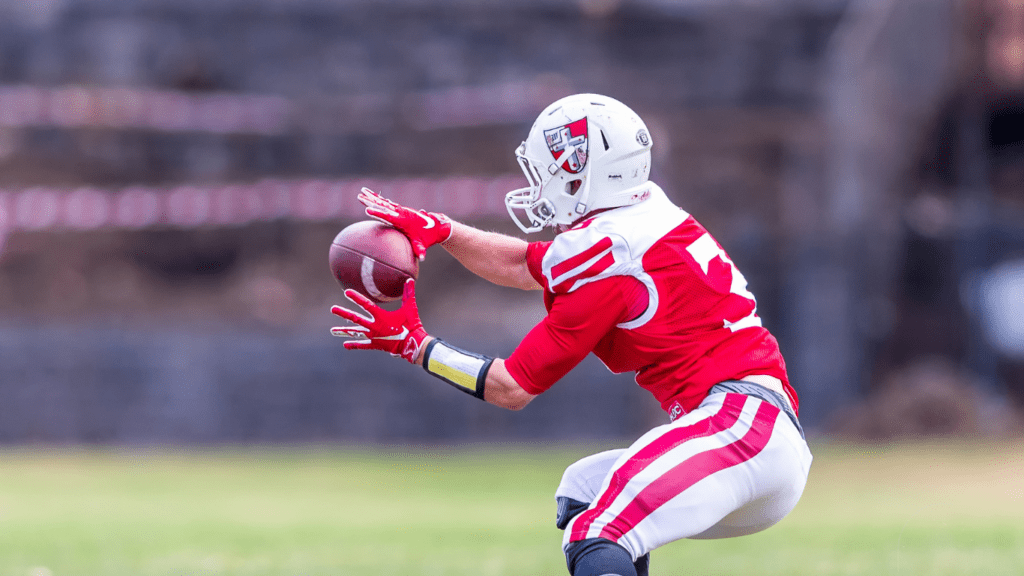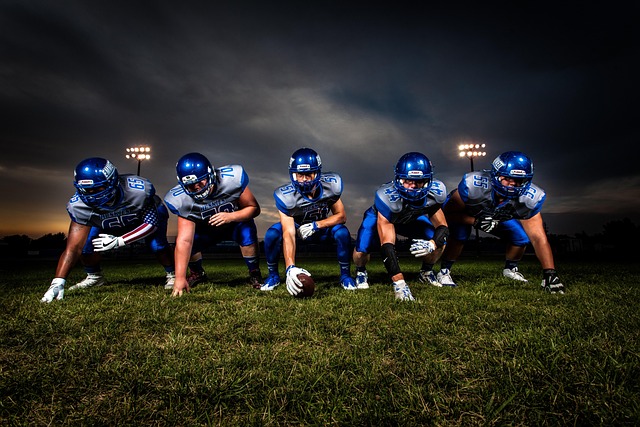As a passionate football enthusiast, I’ve always been intrigued by the inner workings of what propels players to achieve greatness on the field. The science of motivation in football goes beyond mere physical prowess; it delves into the psychological and emotional factors that drive athletes to push their limits and strive for success. Understanding these underlying motivations can provide valuable insights into the minds of football players and the dynamics of team performance.
In this article, I’ll explore the intricate web of factors that contribute to the motivation of football players. From the thrill of competition to the pursuit of personal and team goals, each player is fueled by a unique blend of desires and ambitions. By unraveling the mysteries behind what drives football players to succeed, we can gain a deeper appreciation for the dedication and passion that fuels their relentless pursuit of excellence.
Understanding Motivation in Sports
I delve into the psychological aspects of motivation in sports, focusing on how athletes are driven by a combination of internal and external factors.
The Psychology of Motivation
Motivation in sports is deeply rooted in psychological theories that influence athletes’ behaviors and performance. It’s essential to understand how factors like goal-setting, self-efficacy, and mindset play pivotal roles in driving athletes to succeed. By tapping into these psychological mechanisms, coaches and players can enhance performance levels and achieve optimal results on the field.
The Role of Intrinsic vs Extrinsic Motivation
In the realm of sports, athletes are motivated by both intrinsic and extrinsic factors. Intrinsic motivation stems from internal desires such as the love for the game, personal growth, or a sense of accomplishment. On the other hand, extrinsic motivation comes from external rewards like trophies, recognition, or financial incentives. Balancing these two types of motivation is crucial in maintaining a sustainable drive for success in sports.
Key Motivational Factors for Football Players
When it comes to understanding what motivates football players, several key factors play a significant role in driving their success on the field. Exploring these factors sheds light on the intricate psychological and emotional mechanisms that underpin athletes’ performance.
- Personal Goals and Aspirations
In my experience, personal goals and aspirations are crucial motivational drivers for football players. Setting specific targets, such as scoring a certain number of goals in a season or improving passing accuracy, fuels players’ determination and focus. By striving to achieve these individual milestones, athletes often push themselves beyond their limits and continuously work towards self-improvement. - Influence of Coaches and Team Dynamics
Reflecting on my interactions with players, I’ve observed that the influence of coaches and team dynamics plays a pivotal role in motivating footballers. Coaches serve as mentors and motivators, providing guidance, feedback, and support to help players reach their full potential. Moreover, the dynamics within a team, including camaraderie, trust, and shared goals, create a supportive environment that fosters motivation and enhances performance on the field.
The Impact of Motivation on Football Performance

In understanding the impact of motivation on football performance, it’s evident that motivation significantly influences both the physical and mental aspects of players on the field.
Motivation and Physical Performance
Motivation is a key driver of physical performance in football. When players are motivated, they exhibit higher levels of energy, endurance, and overall physical capability during training sessions and matches. For example, motivated players are more likely to push themselves harder in fitness drills, sprints, and tackles, leading to improved physical attributes such as speed, strength, and agility. This heightened physical performance directly translates into better on-field results and contributes to overall team success.
Motivation and Mental Toughness
In football, motivation plays a crucial role in developing mental toughness among players. Motivated athletes demonstrate greater resilience, focus, and determination in the face of challenges and setbacks both during games and in training. For instance, highly motivated players are more likely to maintain a positive mindset, adapt quickly to changing game situations, and exhibit strong decision-making under pressure. This mental fortitude cultivated through motivation enhances players’ ability to overcome obstacles, stay composed in high-pressure situations, and ultimately perform at their best when it matters most.
Strategies to Enhance Motivation in Football
When looking to enhance motivation in football, it’s crucial to focus on training techniques and goal setting alongside creating a supportive team environment. These strategies play a pivotal role in keeping players driven and committed to achieving their best on the field.
Training Techniques and Goal Setting
Incorporating effective training techniques is key to keeping football players motivated and engaged. As a coach, I always ensure that training sessions are challenging yet achievable, pushing players to constantly improve their skills. Setting specific, measurable, achievable, relevant, and time-bound (SMART) goals helps players stay motivated by giving them clear targets to work towards. By breaking down larger objectives into smaller milestones, players can track their progress, leading to a sense of accomplishment and increased motivation.
Creating a Supportive Team Environment
Building a supportive team environment is essential for fostering motivation among football players. Encouraging open communication, mutual respect, and camaraderie within the team creates a sense of belonging and unity. As a coach, I emphasize the importance of teamwork and collaboration, highlighting how each player’s contribution is valuable to the team’s overall success. By celebrating achievements together and offering support during challenges, players feel motivated to perform not just for themselves but for the team as a whole. This sense of collective motivation drives players to push boundaries and strive for excellence on and off the field.

 Chris Franconso is a distinguished contributor at Awesome Football Network, where he plays a pivotal role in delivering high-quality football content. With a deep-seated passion for the sport and extensive knowledge, Chris provides readers with thorough match previews, insightful tactical analyses, and detailed player assessments. His writing is marked by its clarity and depth, offering a comprehensive understanding of the game that caters to both casual fans and dedicated professionals.
Chris’s expertise extends beyond just reporting; he brings a nuanced perspective to football journalism that enhances the reader's experience. His commitment to presenting accurate and engaging content helps Awesome Football Network maintain its reputation as a leading source for football news and analysis. Through his work, Chris contributes to the platform’s mission of enriching the football community with relevant and timely information.
Chris Franconso is a distinguished contributor at Awesome Football Network, where he plays a pivotal role in delivering high-quality football content. With a deep-seated passion for the sport and extensive knowledge, Chris provides readers with thorough match previews, insightful tactical analyses, and detailed player assessments. His writing is marked by its clarity and depth, offering a comprehensive understanding of the game that caters to both casual fans and dedicated professionals.
Chris’s expertise extends beyond just reporting; he brings a nuanced perspective to football journalism that enhances the reader's experience. His commitment to presenting accurate and engaging content helps Awesome Football Network maintain its reputation as a leading source for football news and analysis. Through his work, Chris contributes to the platform’s mission of enriching the football community with relevant and timely information.
